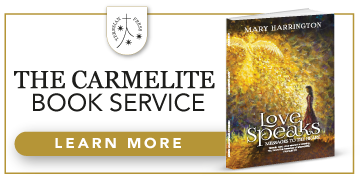Sorry, no records were found. Please adjust your search criteria and try again.
Sorry, unable to load the Maps API.
For a political culture that’s talking a lot just now about the breakdown of society, it’s a great shame that almost no-one wants to engage with the question of the role that faith can play in creating social cohesion. With the decline of institutionalised religious beliefs it has been easy to assume that over the past half century Britain has been drifting slowly but relentlessly from a Christian, through multi-faith, to a secular country. Nothing could be further from the truth, though not all of it is necessarily benevolent.
There is nothing new in the weaponisation of faith, much of the shaping of the past century has been the result of religious conflict, and there are no signs of it diminishing. One only has to look at the actions of presidents Bashar Assad of Syria or Slobodan Milošević of Serbia to see how the manipulation of religion can be used to generate violent conflicts. Although religious faith is rarely the root cause of such conflicts, which usually have their foundation in a complex range of ideological and strategic differences, it’s all too often an easy play for leaders to manipulate religious messages and institutions into driving their populations toward disastrous conflicts.
Many of us no doubt still carry vivid, disturbing and even direct memories of the dreadful faith-justified violence that were The Troubles, and radicalisation of another kind has more recently being manifested in horrific acts of global and local terrorism, with faith as its subscript.
In response to this politicians are understandably reluctant to engage the faith/politics space at all, seeing it primarily as a place of controversy and conflict, and badly at odds with a predominantly relativist society. Most political parties have therefore found it virtually impossible to formulate moral rather than ethical frameworks when creating public policy. If it is relatively easy to create laws that refer to specific actions that society generally agrees are good or bad, it’s a lot harder to distinguish the invisible guiding principles that at any given time lead to our concepts of good or bad.
This is significant because one of the central contributions of religion to society is that it presents a fixed moral and ethical framework for human interaction that does not dissolve with the changing nature of society. In simple terms, faith offers society certainty in uncertain times, which is probably why we are seeing the signs of a resurgence of faith-based political parties across Europe and beyond. Unfortunately many of these manifestations have a familiar ambiguity and darkness to them, which is why some commentators have begun referring to the present political and social turmoil as another ‘1939 moment’.
It is perhaps one of the most urgent responsibilities of the moment that we need to reclaim the faith space from the far right of centre before it becomes irrevocably associated with authoritarianism, prejudice and social oppression. It’s a challenge that the Catholic Church has struggled with greatly over the centuries – our founding tenets were radical, counter-cultural and in many respects radical and revolutionary, yet we have all too often had to rely on the mechanisms and personalities of the state to preserve and endorse our moral and societal concerns – the ‘render unto Caesar’ dilemma.
If one takes a long view back over the past two millennia, we see a society that has variously adopted Christianty with vigour, been undulydominated by it, has largely rejected it and replaced it with arbitrary secular morality – and is now wondering why we’re tumbling toward societal breakdown.
Of course religion, and especially organised religion ,is not a panacea for society’s ills, but it does offer a coherent and tested framework through which society can function in an orderly and benevolent manner. Without some such recognisable form of behavioural code, we can see that society quickly diverges and splinters into dangerously fragmentary and conflicting enclaves that can easily become fundamentally disruptive to both the common good, and the general order of a supposedly civil society.
If one looks to the development of religious ideas within politics such as they are beginning to emerge around the globe there is precious little evidence of a drive towards magnanimity and tolerance, rather certain core religious beliefs and practices are being weaponised to support dangerous and divisive ideologies – and not just by deluded citizens but political leaders and influences, particularly those coming from the far Right. Already we are seeing the concepts of the male/female family, abortion, sexual politics, national identity and even the Rosary being attached to far-Right political agendas, to the profound detriment of all of those of us in faith communities.
It’s not difficult to see how this ‘militarisation’ of Christian ideas is causing deep concern across the political estate, and is increasingly making it difficult – if not impossible – for those lobbying from a faith base to have their voice heard in the wider political arena.
One only has to look at the treatment of the SNP’s Kate Forbes to see that the Christian voice is being driven out. Socially and economically conservative, Forbes had clear but religiously mainstream views on a range of hot ethical topics, including abortion and LGBT rights. It was no more than a reflection of her Christian Free Church faith, but merely holding such views meant ironically she could no longer be tolerated within an institution founded to promote open debate and tolerance of diverse ideas.
“have we become so illiberal that we cannot have these discussions? Because if some people are beyond the pale then those are dark and dangerous days for Scotland,” said Forbes. In a BBC interview in May 2021 she openly stated that her faith was “essential to my being” but that in politics she often had to ‘tiptoe around it” because of a “fear and a sense that the public will think we only speak for our own rather than speak for everybody”.
“To be straight, I believe in the person of Jesus Christ,” said Ms Forbes.
“I believe that he died for me, he saved me and that my calling is to serve and to love him and to serve and love my neighbours with all my heart and soul and mind and strength. So that for me is essential to my being. Politics will pass – I am a person before I was a politician and that person will continue to believe that I am made in the image of God.”
Such surety and honesty was enough to exile her from the political mainstream, much as Liberal Democrat leader Tim Farron had discovered some years earlier. A confessed Christian, he too became the subject of such obsessive and undue scrutiny for his views on homosexuality in particular that he was eventually forced to admit that he found himself “torn between living as a faithful Christian and serving as a political leader”. In a moving resignation speech that will probably re-emerge in the future as emblematic of Britain’s disastrous secular experierment, Farron argued that: “There are Christians in politics who take the view that they should impose the tenets of faith on society. But I have not taken that approach because I disagree with it – it’s not liberal and it is counterproductive when it comes to advancing the gospel.”
Even before Farron, when Catholic PM Tony Blair’s spin doctor Alastair Campbell famously stated “we don’t do God”, he was merely echoing a profound unease that some legislators have about mixing faith and politics.
But to do anything less is dishonesty, and hardly a good starting point for those who might aspire to political leadership. Claiming to be able to hold a deep Christian (or indeed any other) faith whilst putting this aside to make legislative decisions that affect and define the moral landscape of a country is at best to reach for the impossible, and at worst to be guilty of dreadful hypocrisy. It leads to the kind of scenario where we have a United States president who makes a great public play of his Catholic faith, gets his motorcade to take him Mass every Sunday, blesses himself in public and injects Catholic teaching into his speeches, yet this very day is campaigning for re-election with the right to abortion right up there near the top of his election promises.
“A vote for Joe Biden and Kamala Harris is a vote to restore Roe, and a vote for Donald Trump is a vote to ban abortion across the country,” Biden campaign manager Julie Chavez Rodriguez said recently.
Earlier this morning – just hours before the start of the G7 event – it has been announced that President Biden will meet with Pope Francis at the summit in the city of Fasano in Apulia, Italy. When they last met, in October 2021, Biden told Francis that he was a “warrior for peace”, but much has changed since; he’s now flying on a blatantly pro-abortion ticket which is actually an ideological leap well beyond merely having a Catholic faith, but legislating for the broader will of the people.
It is, however, probably the sort of place one ends up when you try to go into politics believing that you can take your faith with you, but keep it safely in your pocket when the wind is blowing otherwise.
Joseph Kelly is a Catholic writer and theologian
































